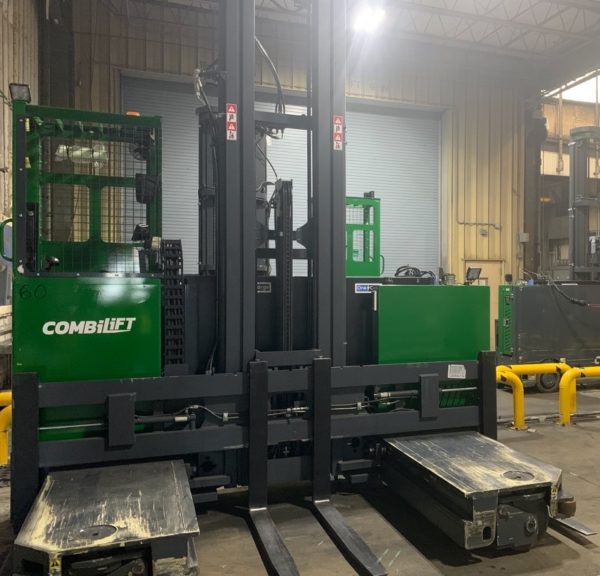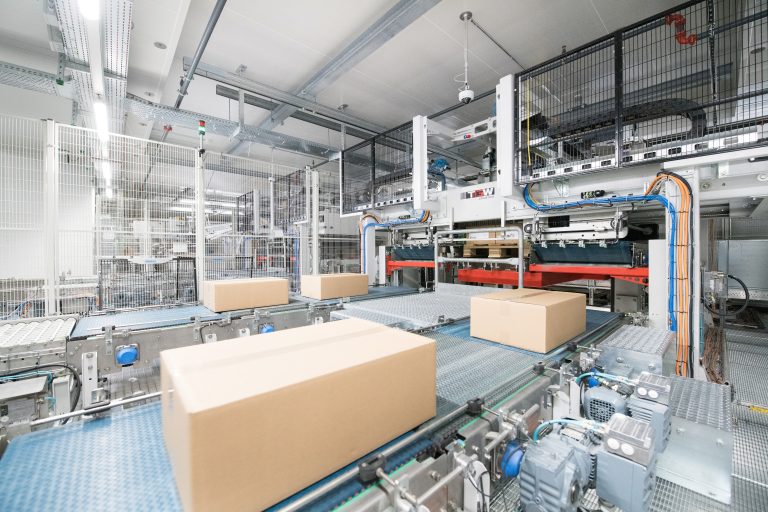The impact of material handling on the recovery of the USA economy is monumental. Some segments were certainly hit harder than others during 2020, but today the whole industry adapts to the new customer demands faster and moves quickly to adopt new enabling technologies.
What are the three mega-trends supporting the post-pandemic growth in the material handling industry?
Most experts name flexibility, automation, and workplace safety.
It is in this need for flexibility in the warehouse, automation of operations, and top hygiene and safety standards, where lithium battery technology fills an essential piece of the puzzle. This article will explain how material handling companies can better harness these growth trends with the use of Li-ion power.
The flexibility of equipment choice
We wrote about the proliferation of various types of material handling equipment in the article about How Lithium-Ion Batteries Help Warehouses Keep Up with Modern Commerce. Increasing heights and reduced warehouse imprint, handling of very different, heavy, or bulky materials, all increase the need for diverse and specialized equipment. All forklift makes and models need their own unique power pack with varied requirements for weight, size, capacity, and power. Lithium technology offers great flexibility to battery engineers due to a much higher energy density compared to lead-acid. The best practice is to customize a battery for a lift truck fleet working in a specific application. A good example is the CUSTOM Series lithium battery by OneCharge that fits many Combilift models. Some Combilift models use a design that employs 2 separate battery cases for lead-acid, while the CUSTOM lithium solution puts all the required power (and sometimes even more ah capacity) into one case, and the second case contains only ballast to meet the counter-weight specification.
Flexibility in work schedule
Not only do lithium-ion batteries offer a full slate of options to match the needs of the operations, but they also require zero daily maintenance. Li-ion batteries DO NOT require daily watering or swapping at shift changes, so companies need not plan labor for this work or plan facility space around battery charging/changing rooms.
The increased uptime that is achieved with the switch to lithium batteries similarly fills this need for higher productivity of equipment when the demand is higher. With Li-ion a lift truck can operate on a single battery with opportunity charging, and reach full charge in under two hours when needed. By comparison, traditional lead-acid batteries require eight to ten hours to charge and need two or more batteries per truck.
Adoption of automation
As the use of Autonomous Guided Vehicles (AGVs), Autonomous Mobile Robots (AMRs), and others grow within material handling, lithium-ion batteries gain more popularity because they are the best choice for this type of equipment. Flexible charging patterns, wireless charging, and other benefits are described in detail in the article on why switching AGVs to lithium batteries makes a lot of sense. There is a good reason to believe that with more warehouses going dark, most of the electric lift trucks will run on lithium batteries.
Modern lithium battery management systems are Wi-Fi enabled and provide fleet managers with reliable data on each lift truck’s battery performance, including energy throughput, the timing of charging events, and multiple indicators of battery health. This data by itself provides valuable insights for better equipment utilization and can be further integrated with the warehouse managing software analytics.
Safety and hygiene standards
Many warehouses and distribution centers are required to keep up the highest hygiene standards to match the requirements of food and beverage, wine, pharma, and medical supplies manufacturers. Li-ion technology provides a non-toxic and safe power source for warehouses of all types, they produce no pollutants. Conventional lead-acid batteries, while widely used throughout the material handling industry in electric lift trucks, present toxic risks, and real issues due to possible acid spills and fumes. These common safety issues are often the result of overheating while charging or simple human mistakes in the course of daily maintenance.
OneCharge Lithium Batteries
OneCharge customers have seen these benefits in action after switching their electric lift trucks to lithium batteries.
One of the largest medical supply distribution centers in California was struggling with the increasing labor needs for the daily maintenance of their lead-acid forklift batteries. Charging of the batteries was often interrupting regular operations, thus decreasing efficiency and equipment utilization. To make matters worse, they were a safety concern too. The company’s fleet of 20 electric forklifts was having issues with batteries growing disturbingly hot. Added to this were the occasional acid spills damaging the floor coating and the trucks, creating slippery, hazardous, corrosive conditions. Routine maintenance had ultimately expanded up to two hours of added labor daily.
The distribution center’s switch to Li-ion batteries by OneCharge did not require operational infrastructure changes. Using lithium-ion batteries offered an immediate positive impact. Daily maintenance of batteries was eliminated, operations became more reliable and the total cost of the equipment ownership was reduced by twenty-two percent.
The company then decided to switch to lithium-ion batteries exclusively at all its locations to replicate this best practice.
Briggs & Stratton, a leading U.S. small engine manufacturer headquartered in Milwaukee, Wis., also secured safety benefits by switching to Li-ion.
In 2019, the company was consolidating a number of smaller existing warehouses throughout the U.S. into two large distribution centers. The company switched the majority of its forklift fleet to lithium-ion batteries, and problems with leaking acid were eliminated.
The opportunity charging capabilities and no memory effect in the OneCharge Li-ion batteries allowed Briggs & Stratton to charge randomly at any state of charge, creating a five percent overall efficiency increase. This greater uptime allows the company to be primed to meet the automation trend within the industry in the coming years.
With over 600 lithium battery models available, OneCharge can provide material handling operations with the right kind of lithium-ion battery for any electric lift truck.
The company offers the MAX POWER Series for heavy applications, the FROST Series for work in the cold ambient temperature, the CUSTOM Series for specialty equipment, 4500 PALLET JACK Series and the AMERICAN STANDARD Series for the most popular models of equipment in Classes I, II and III.
Benefits of Li-ion in material handling
- Reduce the total cost of ownership of MH equipment in most operations
- Single battery operation through multiple shifts, no need for a battery room
- Increased uptime with opportunity charging
- Safe and clean technology satisfies the top hygiene standards
- Versatile drop-in solutions for the vast variety of equipment and applications
- Automation-ready – a perfect fit for the AGVs and AMRs; cutting edge data capabilities











